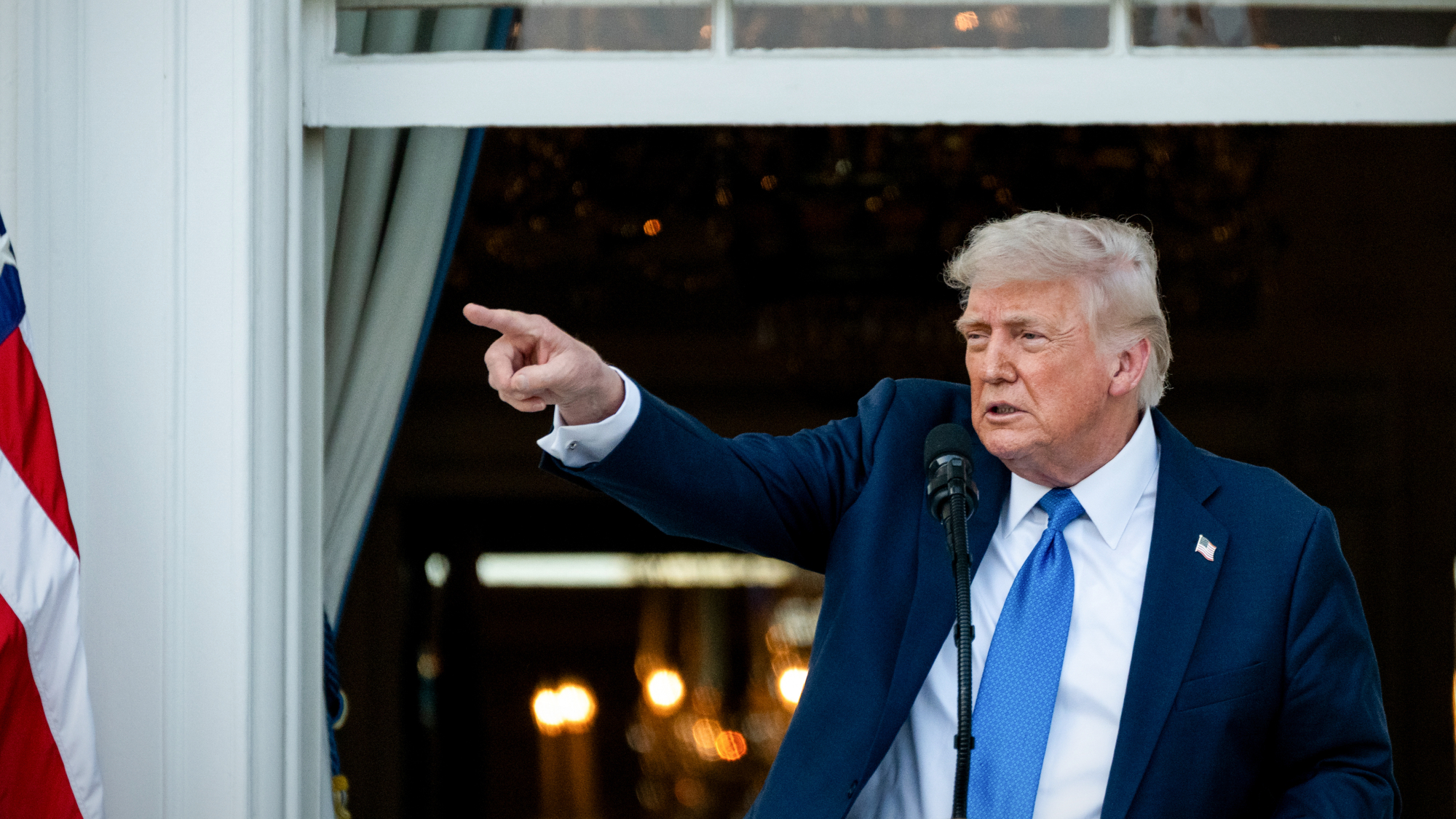Trump hits Africa, Middle East with new travel ban
Under the same legal grounds, Trump signed an executive order to block foreign students from attending Harvard.


A free daily email with the biggest news stories of the day – and the best features from TheWeek.com
You are now subscribed
Your newsletter sign-up was successful
What happened
President Donald Trump late Wednesday revived the controversial travel ban from his first term, issuing a proclamation barring visitors from 12 countries and restricting entry from seven. Most of the affected countries are in Africa or the Middle East, though three are in the Americas.
Using the same legal grounds, Trump signed a separate executive order to block nearly all foreign students from entering the U.S. to attend Harvard.
Who said what
Trump "justified" the new travel ban "in a number of ways," targeting countries with high visa overstay rates and those deemed to have "deficient" screening or vetting standards, The Wall Street Journal said. "We don't want 'em," Trump said in a video announcing the restrictions. He also tied the policy to Sunday's Molotov cocktail attack on a Jewish group in Boulder, Colorado, though the suspect in that assault is from Egypt, a country not on Trump's ban list.
The Week
Escape your echo chamber. Get the facts behind the news, plus analysis from multiple perspectives.

Sign up for The Week's Free Newsletters
From our morning news briefing to a weekly Good News Newsletter, get the best of The Week delivered directly to your inbox.
From our morning news briefing to a weekly Good News Newsletter, get the best of The Week delivered directly to your inbox.
The banned countries are Afghanistan, Chad, the Republic of the Congo, Equatorial Guinea, Eritrea, Haiti, Iran, Libya, Myanmar, Somalia, Sudan and Yemen. Citizens of Burundi, Cuba, Laos, Sierra Leone, Togo, Turkmenistan and Venezuela face restricted entry, mostly through limited temporary visas. Trump's 2017 travel ban was blocked by the courts twice before the Supreme Court upheld a third version in 2018. Former President Joe Biden revoked it on his first day in office in 2021, calling it a "stain on our national conscience."
A federal judge last month blocked the Trump administration's first attempt to bar foreign students from Harvard. But Trump's new salvo — and the new travel ban — "invokes a different legal authority" that gives presidents "broad" authority to block foreigners seen as incompatible with America's national interests, The Associated Press said. Harvard called the order "yet another illegal retaliatory step" by Trump that violates the university's "First Amendment rights," and vowed to "continue to protect its international students."
What next?
The travel ban goes into effect Monday, providing a "cushion that avoids the chaos that unfolded at airports nationwide" after Trump's 2017 ban, the AP said. The Supreme Court's decision to uphold the third ban "could make it more difficult for opponents to block Trump's new one," The Washington Post said, though "some immigration lawyers anticipated lawsuits" nevertheless.
A free daily email with the biggest news stories of the day – and the best features from TheWeek.com
Peter has worked as a news and culture writer and editor at The Week since the site's launch in 2008. He covers politics, world affairs, religion and cultural currents. His journalism career began as a copy editor at a financial newswire and has included editorial positions at The New York Times Magazine, Facts on File, and Oregon State University.
